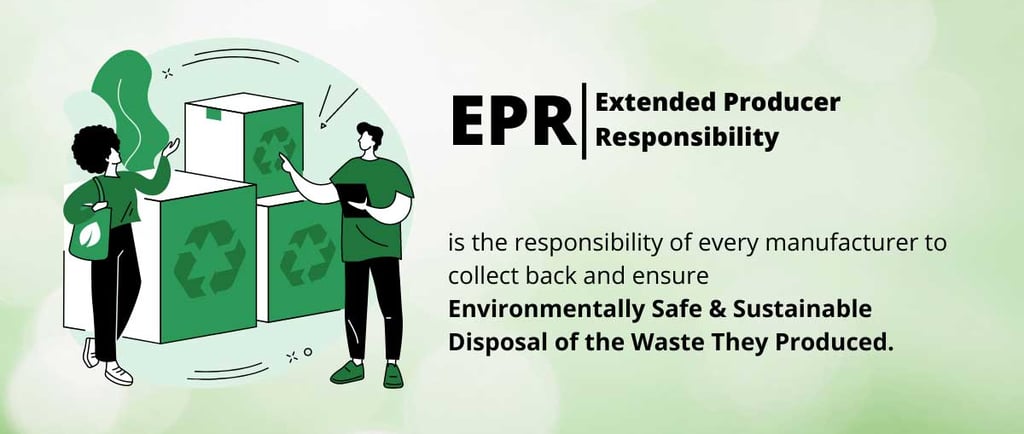Navigating the Shifts in U.S. Waste Management After China's 'No More' Policy
Here we discuss the impact of China's 2018 decision to stop accepting imported recyclables, which led the U.S. to reconsider its waste management strategies. A key shift is towards Extended Producer Responsibility (EPR), which places the financial and logistical burden on manufacturers rather than local governments. EPR encourages companies to design more recyclable products, reducing waste and costs for municipalities while fostering a circular economy. This shift could lead to more sustainable waste management and better collaboration between manufacturers and recyclers.
10/21/20242 min read


The Turning Point in U.S. Recycling
In 2018, a significant turning point occurred in the global recycling landscape. The United States discovered that China, once the world's primary destination for recyclable waste, decided to halt the acceptance of imported recyclables. This pivotal moment ignited essential discussions about waste management in the U.S., compelling policymakers and manufacturers to rethink their strategies for handling waste sustainably.
Extended Producer Responsibility: A Shift in Focus
One of the most notable outcomes of this policy change in China has been the growing emphasis on Extended Producer Responsibility (EPR). EPR shifts the financial and logistical burden of waste management from local municipalities to the companies that manufacture, sell, and distribute products. Rather than local governments shouldering the costs associated with waste disposal, EPR holds manufacturers accountable for the entire lifecycle of their products, from design to disposal.
The Benefits of EPR for Sustainable Waste Management
Implementing Extended Producer Responsibility presents numerous advantages for sustainable waste management. Firstly, it incentivizes companies to design products that are easier to recycle or reuse, fostering innovation in product development. By considering end-of-life implications at the design stage, manufacturers can create more sustainable products, thereby reducing waste accumulation.
Additionally, EPR can lead to reduced costs for municipalities. With manufacturers responsible for the disposal and recycling of their products, local governments experience a significant decrease in waste management expenses. This shift allows municipalities to allocate funds toward other pressing community needs while promoting a more sustainable approach to waste management.
Moreover, EPR encourages collaboration between manufacturers and recycling facilities, resulting in a more efficient waste management system. As companies invest in sustainable practices and take responsibility for the waste they generate, the industry can benefit from enhanced reputations and customer loyalty.
As discussions about sustainable waste management continue to evolve in the U.S., the importance of the Extended Producer Responsibility model cannot be overstated.
By shifting responsibility from local governments to manufacturers, the U.S. can create a more sustainable future, paving the way for a circular economy where products are reused and waste is minimized.
Ultimately, the decision by China to reject foreign recyclable waste acted as a catalyst for much-needed policy changes in the U.S. As the country adapts to this new reality, it is essential to embrace innovative solutions like EPR that prioritize sustainability and encourage responsible waste management practices across various sectors.
